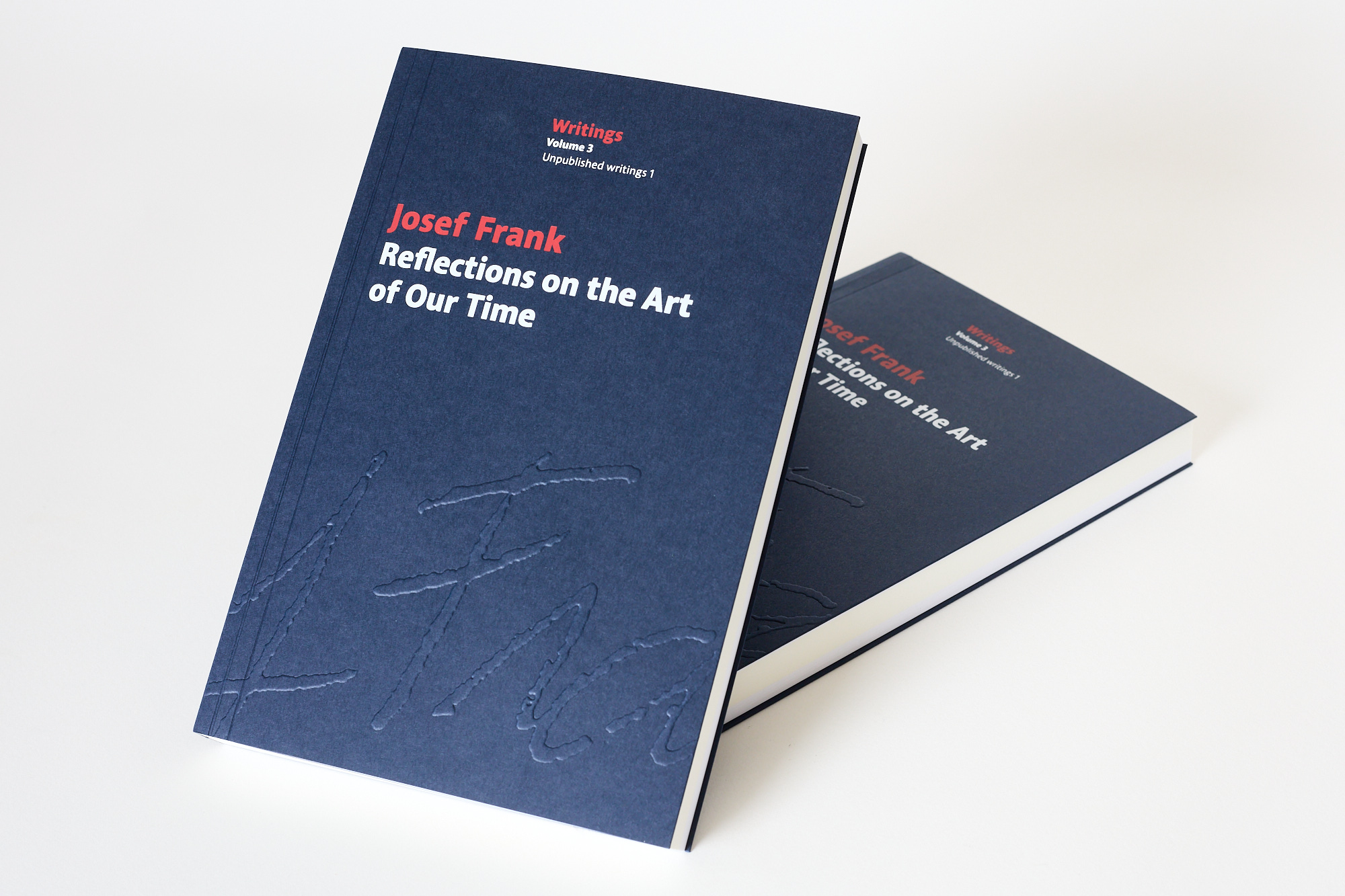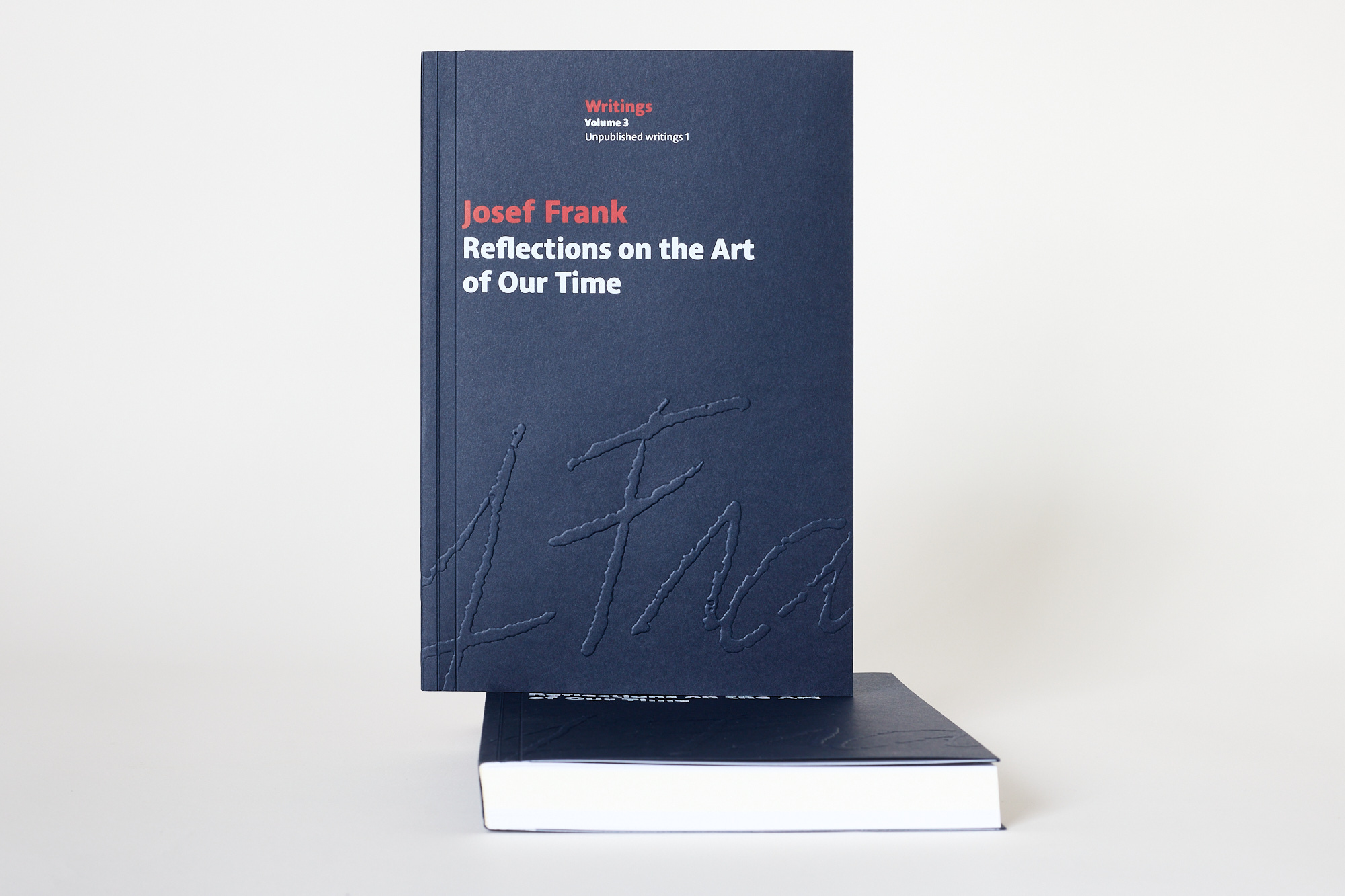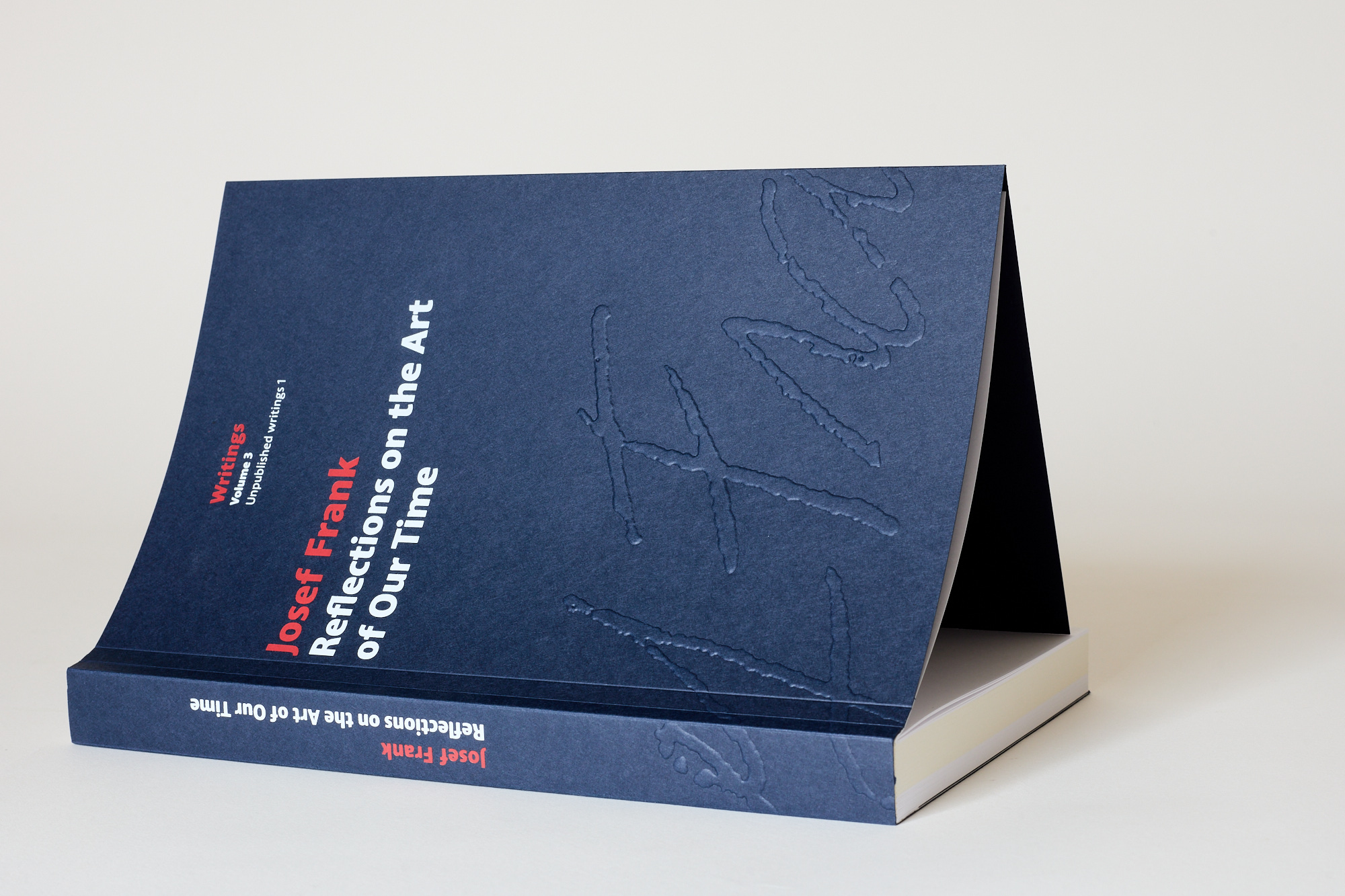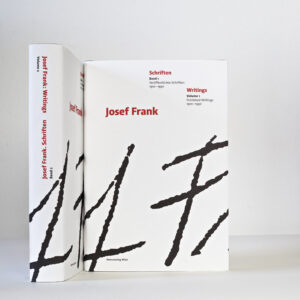Josef Frank – Reflections on the Art of Our Time
€ 38,00
Beschreibung
About the book: Josef Frank – Reflections on the Art of Our Time
Josef Frank (1885–1967), the Austrian-Swedish architect, designer, and thinker, left behind a diverse body of work that goes far beyond the design of rooms. As an architect and interior designer, he was a visionary, but his writings also reveal him to be a keen observer of cultural developments. His essays—some published, some previously unpublished—offer profound insights into the dynamics of art, society, and politics in the 20th century.
The first two volumes of his collected writings, published in 2012 by the IPTS, are still available. The present volume, published in collaboration with Kant Publishing, opens the series of unpublished texts and provides a previously unavailable glimpse into Frank’s reflections on modern art.
Josef Frank: A Critical View of Modernism
This volume highlights Josef Frank’s intensive engagement with 20th-century art and culture, particularly from the fin de siècle onwards. In his Reflections on the Art of Our Time, Frank analyzes the often ambivalent relationship between craftsmanship, fine art, and the political upheavals of his era. His critical view of modernism is particularly evident in the context of the totalitarian ideologies that led Europe into World War II.
But Frank’s criticism is not limited to Europe: he also questions developments in the United States, where he taught and wrote during his exile in New York. A highlight is his 1945 text Zu Mondrian (On Mondrian), an astute “letter to the editor” written on the occasion of a retrospective at the Museum of Modern Art (MoMA). In it, Frank expresses reservations about the radical abstract trends of modernism, which for him symbolize the loss of human standards and sensual quality.
An annotated edition with essays by leading experts
In addition to Frank’s texts, the book offers an extensive 60-page commentary and essay section written by renowned scholars and architects. Contributions by Tano Bojankin, Caterina Cardamone, Hermann Czech, Otto Kapfinger, Christopher Long, and Claudia Mazanek shed light on the historical and cultural context of Frank’s writings. They analyze how his positions reflect both the crises of modernity and its utopian potential.
An indispensable work for critical art and architectural history
This book is more than a collection of essays: it is a multi-layered document on the tension between art, architecture, and society in the 20th century. For anyone interested in the deeper meaning of modernity and its critical examination, this work is an essential contribution to cultural history. Josef Frank’s writings offer not only historical insights, but also food for thought for contemporary debates on the relationship between aesthetics, functionality, and ideology in art and architecture




